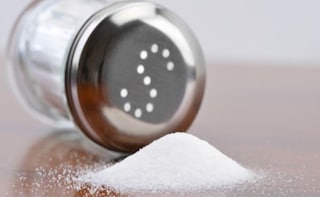Salt, considered to be the basic ingredient when it comes to cooking, is the sole factor which binds together all the other flavours and makes the dishes relishing and loved by all. It is also salt that enhances the colour of the food and makes it appealing. However, it is a known fact that this magic ingredient comes with a price because its high consumption can be extremely harmful to health. One of the major effects on health is raised blood pressure or hypertension that causes stroke, heart failure and heart attacks.
Advertisement
Advertisement
For the latest food news, health tips and recipes, like us on Facebook or follow us on Twitter and YouTube.
Advertisement
Tags:
